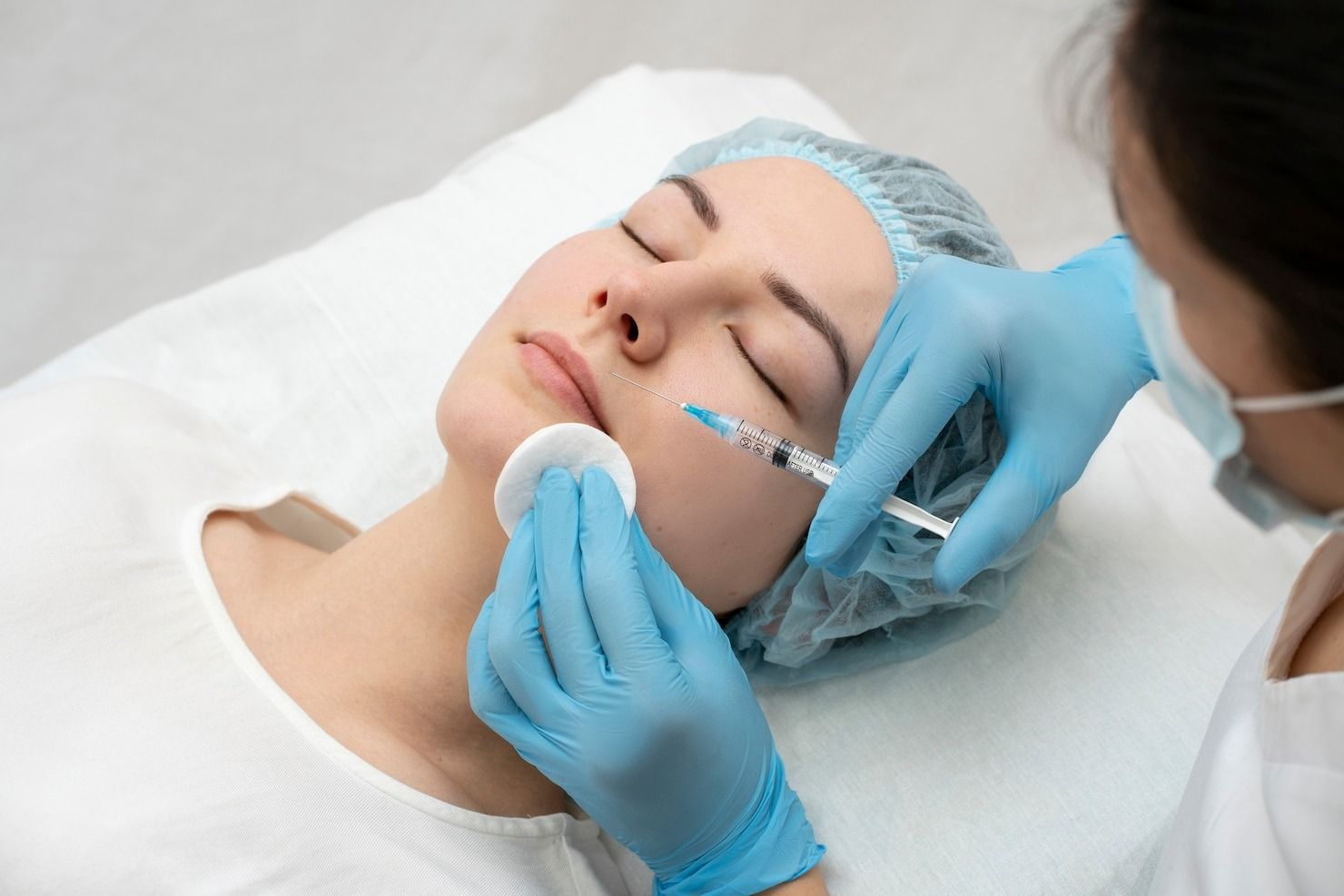Choosing a plastic surgeon is one of the most important decisions you'll make in your aesthetic journey. The right surgeon can help you achieve results that enhance your confidence and align with your goals, while the wrong choice can lead to disappointment or complications. Understanding what qualifications to look for can help you make an informed decision.
1. Board Certification Is Non-Negotiable
The first and most critical qualification to verify is board certification by the American Board of Plastic Surgery (ABPS). This certification requires extensive training, rigorous testing, and ongoing education. Board-certified plastic surgeons have completed at least six years of surgical training after medical school, including specific residency training in plastic and reconstructive surgery.
Board certification demonstrates that a surgeon has met the highest standards in the field. It means they've undergone comprehensive evaluation of their surgical knowledge, technical skills, and ethical practices. Many physicians may call themselves cosmetic surgeons without this specialized training, so always verify certification through the ABPS website or during your consultation.
Beyond the initial certification, look for surgeons who maintain their credentials through continuing medical education. The field of plastic surgery constantly evolves with new techniques and technologies, and committed surgeons stay current with these advances through ongoing professional development.

Understanding the depth of training required for board certification helps you appreciate why this credential matters. Plastic surgery residency programs are highly competitive and demanding, accepting only the most qualified candidates who demonstrate exceptional surgical aptitude and dedication to patient care.
2. Facility Accreditation Protects Your Safety
The surgical facility where your procedure takes place matters just as much as your surgeon's qualifications. Look for surgeons who operate in facilities accredited by the American Association for Accreditation of Ambulatory Surgery Facilities (AAAASF) or similar organizations recognized for their rigorous safety standards.
AAAASF accreditation means the facility has met strict requirements for equipment, staffing, emergency protocols, and patient care standards. These facilities undergo regular inspections and must maintain compliance with current medical guidelines. This accreditation provides an additional layer of safety and quality assurance for your procedure.
Ask potential surgeons about the accreditation status of their surgical facilities. If they operate in multiple locations, verify that each facility maintains proper accreditation. Hospital-based surgical centers and accredited outpatient facilities both offer high standards of care when properly certified.
Facility accreditation also ensures that appropriate anesthesia providers are present during your procedure. Whether your surgery requires local anesthesia, IV sedation, or general anesthesia, accredited facilities maintain certified anesthesia professionals and emergency equipment to handle any situation that might arise.
3. Experience and Specialization Matter
While board certification establishes baseline competency, a surgeon's specific experience with your desired procedure significantly impacts your outcome. During consultations, ask how frequently the surgeon performs the procedure you're considering. Surgeons who regularly perform specific procedures develop refined techniques and a deeper understanding of subtle variations that can enhance results.
Some plastic surgeons focus their practice on particular areas such as breast surgery, body contouring, or facial procedures. This focused approach allows them to develop exceptional expertise in their chosen specialties. If you're considering breast augmentation, for example, a surgeon who performs this procedure regularly will have extensive experience with different implant types, placement techniques, and approaches for various body types.

Ask about the surgeon's approach to your specific concerns. An experienced surgeon should be able to discuss various techniques, explain why they recommend particular approaches for your anatomy, and show you examples of similar cases they've treated. Their ability to articulate a clear surgical plan tailored to your goals demonstrates both expertise and communication skills.
Consider the surgeon's philosophy regarding aesthetic outcomes. Your surgeon should understand your vision and have the technical ability to achieve results that harmonize with your overall appearance and personal goals, whether you're seeking subtle enhancement or more dramatic transformation.
4. Communication and Personalized Care
Technical skill is essential, but effective communication is equally important. Your surgeon should listen carefully to your goals, answer your questions thoroughly, and provide realistic expectations about what surgery can and cannot achieve. They should discuss potential risks, recovery expectations, and alternative approaches without rushing or dismissing your concerns.
Pay attention to how the entire practice treats you from your first phone call through follow-up appointments. Professional staff, clear communication about costs and procedures, and genuine attention to your comfort indicate a practice that values patient care. The relationship you build with your surgeon and their team will extend through your recovery and beyond.
Bilingual services can be particularly important if English is not your primary language. Being able to discuss your concerns and understand instructions in your preferred language ensures clear communication throughout your surgical journey. Some practices offer Spanish-speaking staff or surgeons who can communicate effectively with patients in multiple languages.
During your consultation, assess whether the surgeon's recommendations align with your goals. A good surgeon will be honest about what procedures will and won't benefit you, even if it means recommending against surgery in some cases. This honesty demonstrates a commitment to your best interests rather than simply booking procedures.
5. Credentials Beyond the Basics
While board certification and facility accreditation are fundamental, additional credentials can indicate a surgeon's commitment to excellence. Hospital privileges at reputable medical centers demonstrate that the surgeon has been vetted by their peers and meets hospital standards for care.
Membership in professional organizations such as the American Society of Plastic Surgeons (ASPS) or the American Society for Aesthetic Plastic Surgery (ASAPS) shows ongoing engagement with the professional community. These organizations require members to maintain high ethical standards and stay current with advances in the field through continuing education.
Some surgeons contribute to the field through teaching, research, or leadership roles in professional organizations. While these accomplishments don't directly determine surgical skill, they often reflect a surgeon's dedication to advancing plastic surgery and sharing knowledge with colleagues. Teaching positions at medical schools or residency programs indicate that other professionals trust the surgeon's expertise.

Look for surgeons who invest in continuing education and advanced training. The field of plastic surgery continuously evolves with new techniques, technologies, and materials. Surgeons who regularly attend conferences, participate in workshops, and pursue additional training demonstrate a commitment to providing patients with the most current and effective options.
Conclusion
Selecting a plastic surgeon requires careful research and consideration of multiple factors. Prioritize board certification by the American Board of Plastic Surgery, verify that surgical facilities maintain AAAASF accreditation, and evaluate the surgeon's specific experience with your desired procedure. Pay attention to communication style, assess the overall patient care approach, and verify additional credentials that demonstrate professional excellence.
Your choice of surgeon significantly impacts both your safety during surgery and your satisfaction with results. Taking time to verify qualifications, ask questions, and ensure you feel comfortable with your surgeon's approach will help you make a confident, informed decision. At 5280 Plastic Surgery, Dr. John Samas combines board certification, surgical expertise, and personalized care to help patients throughout the Denver area achieve their aesthetic goals. Contact our Westminster office to schedule a consultation and learn more about how proper credentials and experience contribute to successful outcomes.






